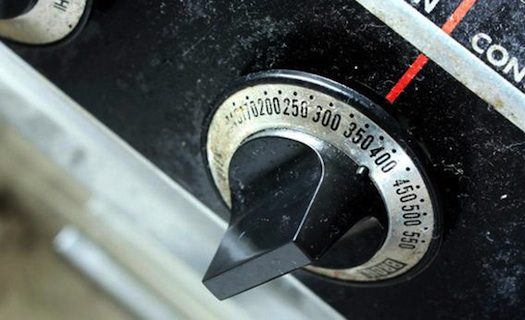To preheat or not to preheat, that is the question
June 27, 2023 by DarcieAlmost any baking recipe, savory or sweet, begins with instructions to preheat the oven. It’s second nature for most cooks to turn on the oven before gathering ingredients or preparing baking pans. But is it really necessary to preheat? There’s one school of thought that says it wastes time and electricity (or gas), and another that says you need to bring the oven to temperature for even cooking. Food & Wine is in the latter camp, and they also provide tips on how to properly manage your oven temperature.

Food & Wine says preheating is a must because as the oven heats up, the “temperature fluctuates, creating significant spikes and drops in heat” that can mess with the look and consistency of your baked goods. They also go a step farther to say that you should preheat some cookware, especially Dutch ovens used to bake bread. Additionally, many – if not most – ovens use both the upper and lower elements when preheating but only the lower element to maintain the temperature. Having the top element on can lead to over browning the top of your food, especially if the oven rack is in any of the upper positions.
Food safety experts also say preheating is an important step, because it reduces the amount of time food lives in the “danger zone” of 40 to 140 degrees Fahrenheit. Even if the time to preheat your oven is not very long, the experts remind us that “some bacteria can multiply in the danger zone in as little as 20 minutes.”
The counter arguments fall into two main camps. The first camp says that it is simply not necessary to preheat the oven for many items, especially those with a long cooking times (think baked potatoes) or that have a lot of liquid, like stews. The second camp says that preheating wastes energy. Even if you have to cook the dish a little longer, the savings amount to about 10% less energy being used, depending on the recipe. Saving 10% may not be life changing, but it is significant enough to consider. A handful of recipes even dictate that you begin with the oven off, the most common being cold oven pound cake and cold oven roast chicken.
Like most things in life, it seems that there is not a black-and-white or one-size-fits-all answer to the question of whether to preheat or not. It will depend on what you are cooking and how your oven heats up. There is one thing that all of the experts agree on, however, and that is to invest in an oven thermometer so you know what temperature your oven really is when you set it to 350 F/180 C.
Categories
- All Posts (6940)
- Antipasto (2135)
- Author Articles (247)
- Book News (935)
- Cookbook Giveaways (983)
- Cookbook Lovers (257)
- Cooking Tips (109)
- Culinary News (299)
- Food Biz People (552)
- Food Online (791)
- Holidays & Celebrations (272)
- New Cookbooks (149)
- Recipes (1500)
- Shelf Life With Susie (231)
- What's New on EYB (133)
Archives
Latest Comments
- Atroyer7 on Danube Cookbook Review and Giveaway
- demomcook on What foods do you look forward to the most for each season?
- demomcook on Danube Cookbook Review and Giveaway
- Darcie on How cookbooks can help build resilience
- mholson3 on Danube Cookbook Review and Giveaway
- Rinshin on How cookbooks can help build resilience
- sarahawker on Danube Cookbook Review and Giveaway
- Sand9 on Danube Cookbook Review and Giveaway
- hankintoby29 on Heritage Cookies of the Mediterranean World – Cookbook Giveaway
- WBB613 on Feasts of Good Fortune Cookbook Giveaway